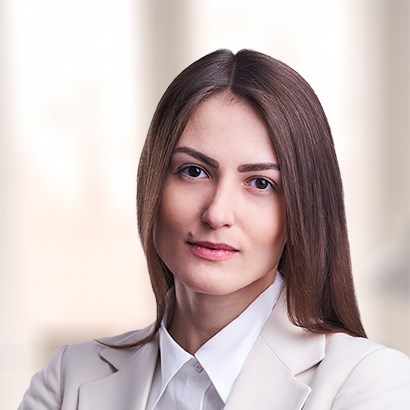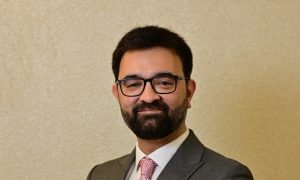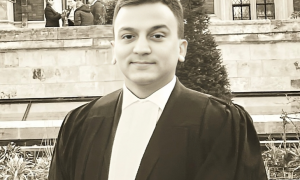This Interview has been published by Pragya Chandni and and The SuperLawyer Team

Mariana, we are delighted to have you for this interview. To start, could you please introduce yourself, providing a glimpse into your professional journey and the factors that led you to specialize in investment arbitration and cross-border litigation?
It had been my dream to become an arbitration lawyer since university. I am grateful to my professor at Kyiv-Mohyla Academy, Dr. Lyubov Logush, for raising my interest in arbitration. My path was not always smooth. During the first two years after graduating from Kyiv-Mohyla Academy I worked as a journalist and in parallel was doing my LL.M in International Dispute Resolution at Humboldt University of Berlin. Only afterwards I managed to start practicing arbitration in Ukraine. For this, I am grateful to Prof. Dr. Gerhard Wagner as the university not only accepted me to the programme but also granted me a tuition fee waiver without which I would not have been able to pursue my studies. It was very difficult to obtain any scholarship in Ukraine as Russia had just started its war of aggression against Ukraine in 2014 and Ukrainian scholarship funds were focused on priority development areas for Ukraine. During my studies, I always planned to come back home and practice arbitration in Kyiv.
Your experience includes significant roles at reputable firms like Linklaters, Avellum, and Kinstellar. Can you share some key moments or cases that have shaped your career as a foreign lawyer, particularly in the realm of international dispute resolution?
When I came back to Ukraine in 2016, I applied to two dispute resolution vacancies for junior associate positions in two international firms. One of those firms – Kinstellar – which had just opened its office in Kyiv believed in me and took me on board. It was the beginning of my arbitration career. For the next, roughly 5 years, I worked on various commercial arbitration and cross-border litigation projects involving Ukrainian elements, culminating in my first cross-examination of witnesses before the LCIA tribunal at the remote hearing in 2020. After my boss left Kinstellar in 2021, I left after him to be able to assist the client going forward.
On the first day, when I joined Avellum, the tribunal rendered a 250-pages award in that matter ruling in our favour. Avellum added investment arbitrations to my CV. I am very proud of the opportunity to work for the Ukrainian government in those arbitrations in the months preceding the war and afterwards.
When the war started, many Ukrainian law firms took drastic measures to ensure that the firms would stay afloat. This was a key reason why I applied for a part-time job in Linklaters Warsaw in July 2022. I had been working at two jobs until October 2023. At present, I work only for Linklaters focusing primarily on business development and pro bono activities in the areas of international arbitration and cross-border litigation.
Having represented clients in various jurisdictions, including Ukraine, Cyprus, Belize, France, Liechtenstein, Switzerland, and the UK, how do you navigate the complexities of cross-border disputes? Are there unique challenges that arise, and how do you address them?
International arbitrations and cross-border litigations might be incredibly challenging, especially if a counterparty is not acting in good faith, falsifies documents, and abuses its rights. Furthermore, these projects may take years. One of my projects lasted for seven years and one of its “branches” still continues. It takes time to get to the truth and, therefore, it is important to stay patient, not to give up when you fail and focus on the end game. With various parallel proceedings, sooner or later, the untruthful counterparty always makes a mistake. So it is very important to keep an eye on various developments happening in other proceedings, keep your position consistent and straight-forward and, when the time comes, use the inconsistencies in the other party’s case to your advantage. As my former colleague once told me and I continue repeating this to others “This is a long run”, so one needs to be prepared for everything, including, as it turned out, COVID and war. This is not a resilience they teach at school or university.
In your current role at Linklaters, you’re actively involved, among other things, in business development and pro bono assistance. Please elaborate.
Both during my last year at Avellum and now at Linklaters, I spend more time than usual on business development and pro bono activities. When the war started and especially before the Kyiv region was liberated, there were days when I would not receive a single email to my email box, which was frightening. The situation improved towards the end of 2022 and 2023 was very active again. At the same time, it was and remains clear that it is not sufficient to focus exclusively on billable projects. More needs to be done for the community. I am very proud of certain pro bono projects I have had a chance to pursue since February 2022, including collecting evidence of russia’s war crimes in Ukraine, suspending russia’s membership in the Financial Action Task Force, assisting Gateway Ukraine with its activities aiming to boost investment in Ukraine, helping Ukrainian refugees and so forth. On the business development side, it is great that many international firms worldwide set up Ukrainian desks in anticipation of Ukraine’s victory and seek to strengthen their relationship with the Ukrainian market. I am happy to facilitate this process.
Your publications cover a range of topics, from legal professional privilege to sham agreements. What drives your interest in legal writing, and how do you balance this with your demanding professional responsibilities?
Unlike other lawyers, I do like writing. As I mentioned, I worked as a journalist for a few years in 2015-2016. My primary task was to choose content and prepare it for Kyiv Post’s supplement, Legal Quarterly. I also helped fact-check Panama Papers for Organized Crime and Corruption Reporting Project (OCCRP). As Ukraine was undergoing major reforms in 2015, it was very interesting to follow this process by interviewing the high-ranking Ukrainian officials in charge of those reforms.
Frankly, I never understood senior lawyers and partners who make their associates write articles for them. As a junior and after seven years as a managing associate I always wrote articles on my own based on the experience I obtained in arbitrations and cross-border litigations. This is why my publications cover a broad range of topics.
Having interned at Wegnerpartner and the German Institution of Arbitration, how did these experiences contribute to your understanding of international arbitration, and what cultural insights did you gain?
Those internships, which were part of my master programme at Humboldt University, cemented my belief that I want to work in the area of arbitration. I am grateful to Korinna von Trotha, the former head of Berlin office of German Institution of Arbitration (DIS), and my professor, Dr. Adrian Müller-Helle, the partner at Wegnerpartner, for giving me an opportunity to become acquainted with arbitration from institutional and counsel perspectives during my studies. Of course, there are differences between Ukrainian and German approaches to arbitration, but, in my view, they are minor.
Juggling a demanding legal career and coaching moot court competitions must require a delicate balance. How do you manage your time effectively, ensuring success both in your professional and coaching endeavours?
Indeed it is very demanding and challenging. Last time, I acted as a coach in 2019-2020. Overall, I coached various moots for six years. I was heartbroken when my team did not go to Washington in 2020 to compete in Jessup due to COVID-19. This year, I advise the Kyiv-Mohyla Vis Moot team and plan to arbitrate the moot in Vienna. It is still time-consuming, but much less than coaching. Despite various burdens that come with coaching, I treat this as a community investment. I believe that students deserve to have good mentorship and I am proud that students I coached now also act as coaches and succeed in their careers.
Away from the legal arena, what are your favourite hobbies or activities? How do you unwind and recharge outside of the legal world?
At first, I was focused only at work and moots, but then it became clear that it could not continue that way. I am passionate about sports – gym, swimming, hiking, cycling – and languages. Unfortunately, in my case, learning each language requires a lot of time and effort, but I am happy I am slowly progressing and hopefully, soon I will be able to say that I speak five languages – Ukrainian, English, Russian (unfortunately), German and Polish. And I assure you it will not be the end of my language journey.
Given your journey from being a junior associate to your current role, what advice would you give to young professionals aspiring to build a successful career in international dispute resolution and foreign law practice?
I would advise you to follow your passion. If you love arbitration, certainly do it. But don’t have any illusions. Legal world is extremely demanding and competitive; the world we live in is extremely challenging and unpredictable; arbitration projects are getting only more complex; co-counsels and clients are not always easy to deal with. Make sure you realise that when you start your career. And when you do – make sure you remain the best version of yourself down that road.

























